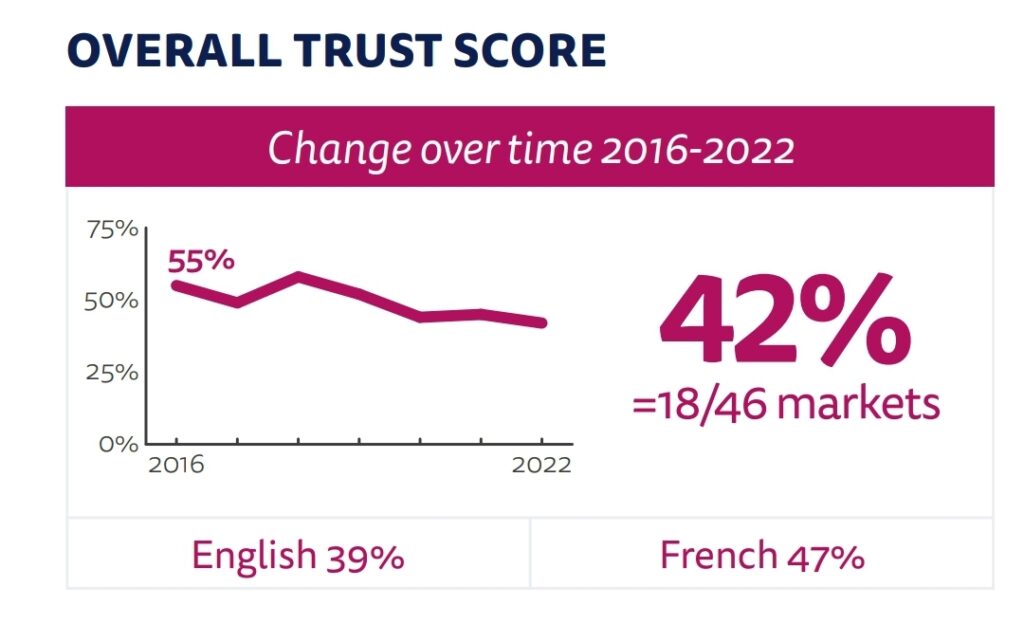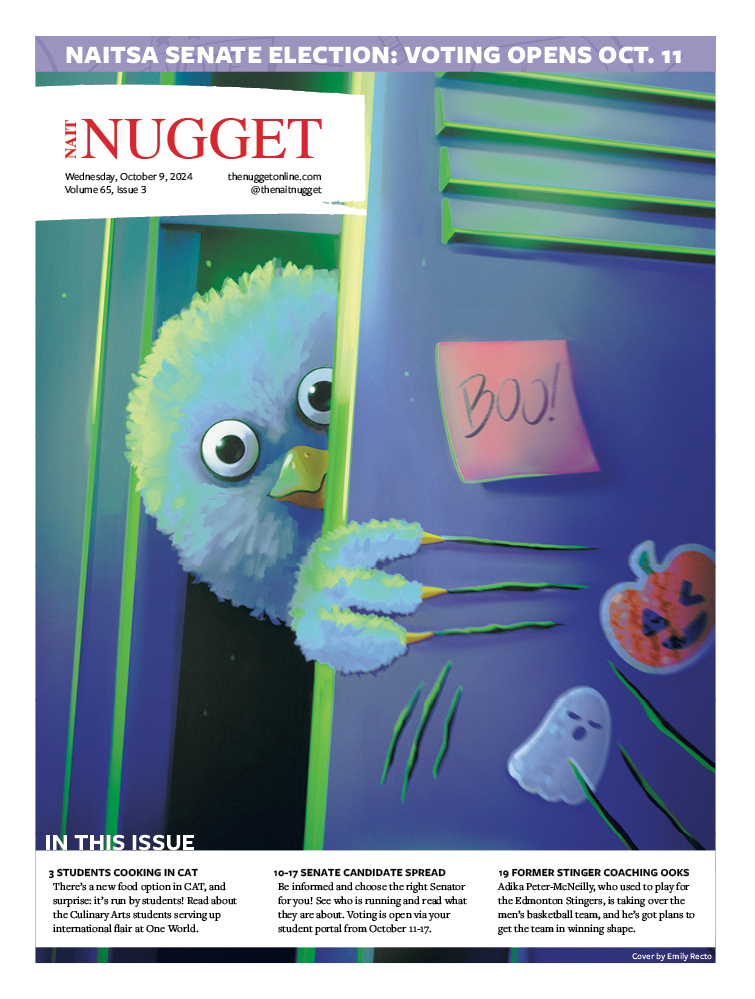Bill C-18 takes effect at the end of the year, but somewhere in the vague talks of revenue and trust between government and corporation, student journalism caught stray bullets in a battle they never should’ve been caught in.
Meta’s review team identifies news outlets based on “legislative definitions.” These include organizations that primarily produce audio and/or visual news content and any organization that investigates and reports on public affairs. The definition covers all mainstream news media, as well as campus and community stations, papers and magazines. Campus papers and stations are no exception, despite not being included in the list of organizations that would benefit from C-18 should Meta have to pay.
The NAIT Nugget primarily used Instagram to communicate with over 1700 engaged students. The student paper has since moved on to TikTok following the Meta ban.
“I am not sure how we are going to reach more [students], since our TikTok is such a small platform comparatively,” said Amy St. Amand, Editor-in-Chief for The Nugget.
Instagram was the paper’s primary outreach tool. Now, they are having to rely on student booths and street teams. The Nugget received advertising revenue from giveaways and sponsored posts with other companies, but 128 followers on TikTok is not nearly enough to form those same partnerships.
Money and trust
Bill C-18, or the Online News Act, received royal assent on June 22, 2023. The bill’s legislative summary cites declining public trust and revenue losses as the primary reasons for regulation.

According to a report from the House of Commons, Canadian newspapers lost millions of dollars worth of advertising revenue from 2005 to 2015, while online advertisers grew exponentially. Student journalism makes nowhere near that amount, nor do they have the reach for it, but they receive the ban nonetheless.
This data was accompanied by a Reuters Institute Report on digital news. Trust in Canadian news media dropped from 55 to 42 per cent between 2016 and 2022. The Reuters report also indicated that 77 per cent of Canadians go online for their news, with 55 per cent also going on social media to stay updated on current events. Facebook, YouTube and Instagram were among the top brands chosen by the public.

Meta and Google’s response
Meta blocked all news accounts by August 1, while Google will be waiting until the law takes full effect at the end of the year. Google plans to remove all links to Canadian news sources from its search engine, Google News and Google Discover.

Meta provided a “Request for Review” form to all accounts affected by the ban. The form includes questions about the types of content the business produces, whose interests they represent, the industry they belong in, and more.
Both tech giants stated that the bill unfairly imposes a “link tax,” meaning that large online platforms would be paying for any links directed to news.
A statement updated by Meta on August 1 claims: “The legislation is based on the incorrect premise that Meta benefits unfairly from news content shared on our platforms, when the reverse is true.”
Google’s statement shared the sentiment, adding that the decision is “the wrong approach to supporting journalism in Canada.” The company says the bill is ‘”unworkable” and exposes them to “uncapped financial liability.” However, unlike Meta, Google proposed solutions for all the critical issues they found with the bill. Their recommendations included clearer language and a reminder of their existing partnerships with news industries worldwide, such as the Google News Showcase and Google News Initiative. The latter program supports newsrooms of all formats and sizes but still neglects to include campus-based organizations.
Jeopardizing future journalists
The Canadian University Press (CUP) and the National Campus and Community Radio Association released a joint statement on the news ban, urging members of both organizations to rally for their interests to Members of Parliament as soon as possible.
The statement asserts that the Online News Act is “denying young Canadians access to vital local news sources and stifling the growth of future journalists.”
Edmonton’s The Nugget, The Griff and The Gateway all remain banned on Meta products. There have been no changes in NAIT’s Radio and Television program at the time of writing. Independent pages, such as YEGWAVE, Daily Hive, URBA Edmonton and more remain accessible.
Students can still access and bookmark their websites on most web browsers to support campus publications through the ban. They can also follow organization accounts on all other social media, such as Twitter, TikTok and YouTube.






